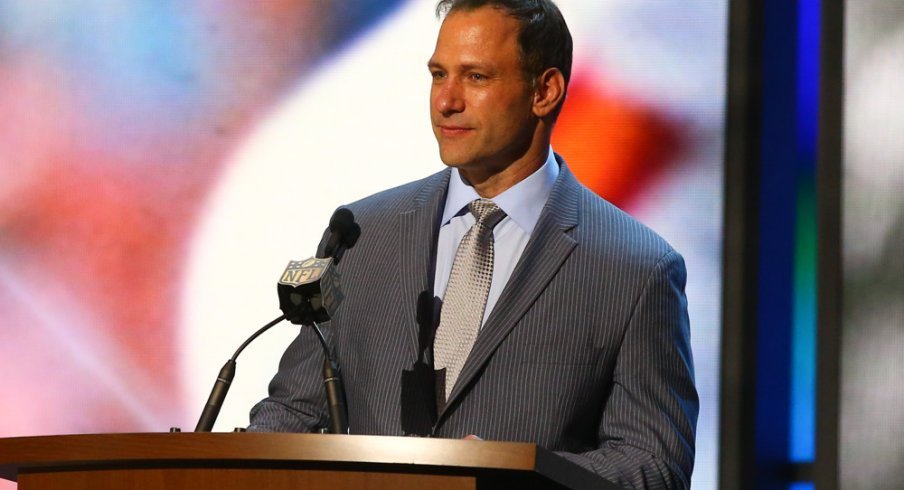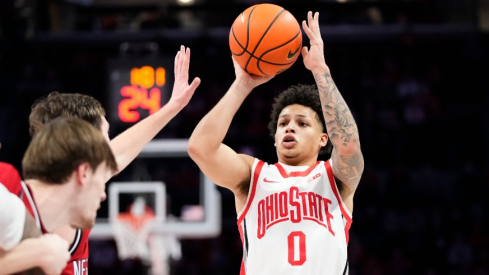The Ohio State University prides itself on the people, the tradition and the excellence of its athletics programs. Buckeye traditions and the excellence need no introduction. But how well do we know the people? Fans know players by the awe-inspiring feats they perform. Mask Off takes a closer look at those individuals as human beings.
Chris Spielman was a two-time All-American at Ohio State and three-time All-Pro for the Detroit Lions. In his final season with the Buckeyes, Spielman was a captain, team MVP and the Lombardi Award winner.
Spielman is a television broadcaster and a self-proclaimed "Cancer Warrior." He describes honoring his late wife Stephanie's memory by battling cancer as his most important role besides being a father of four. He is guided by the principles of "Faith, Family and Community," which he prioritizes in that order.
As a player, Spielman was known for having a warrior mentality. He subjected himself to 'masochistic workouts' at sauna-like temperatures and distinguished himself not with natural size, but with his obsessive drive to tackle more than anyone else.
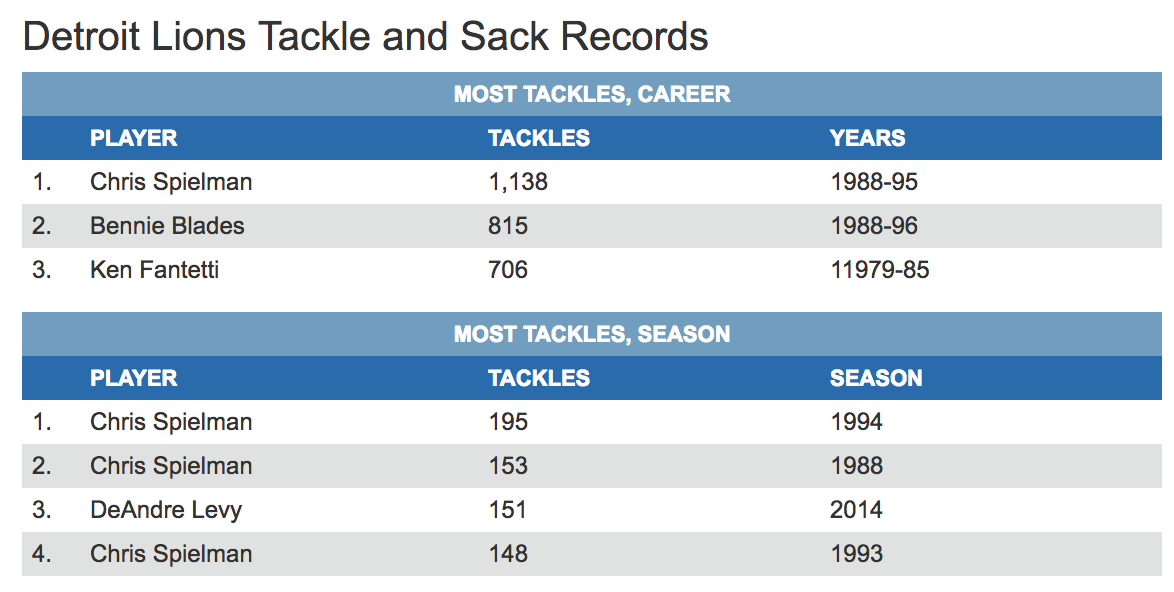
What stands out in conversation with Spielman, though, is not aggressiveness or machismo, but humility. We tend to take the small-town, all-American, tough-as-nails, family-man mold as a given. It is interesting to consider, though, whether it is a consistent set of values, a contradiction or a balance that makes Chris Spielman tick.
In his own words
I want to start in an unconventional place: can you describe your workout routine?
I do something every day. Everything is based on the actual physical workout, based on mixing cardio and lifting in the same workout at the same time, super-setting cardio and lifting. I don’t know if you’re familiar with Orangetheory, but it’s in the same stadium as that, for lack of a better term. It’s kind of cardio and lifting together, and I do something every day.
Don’t you do that in a hot room?
I did all kinds of crazy stuff when I was playing. Those were more geared towards mental toughness tests. Just to get your mind – to put yourself through something that you don’t normally have to go through. You try to simulate what it would be like to play in Florida or Miami or Jacksonville in early September, and it’s 95 degrees with 100% humidity. So, I did all kids of crazy stuff in that regard.
@Pelotonia 12 'Linebacker up a hill' @chris_spielman riding 100 miles for #OneGoal #hope @OSUCCC_James @SpielmanFund pic.twitter.com/G2PesN9qMu
— Stefanie's Team Hope (@StefaniesTeam) June 9, 2015
What motivates you to keep working so hard now that you’re done playing?
I think a lot of it is being a father and a husband. People count on you. And when people count on you, you have to be healthy because they can’t count on you if you’re not available.
That’s an athletes mentality. ‘The best ability is availability’... that's how the phrase goes. I always want to be in good health, not only for myself, for obvious reasons, but for those who count on me.
What is the best part of your day?
Definitely between 4:30 and 6am. I'm usually up then. It’s a spiritual time for me. I’ll read the bible or do prayers or just kind of have some moments to myself. Check emails or whatever... before life hits [laughs]. It’s just me.
What is something you can talk about for hours?
Politics. Outside of sports or football, politics. Anything about it: state, local, federal, international. I just think it’s a fascinating topic. I think it’s important to educate yourself.
Whatever side of the aisle you fall on, I think it’s important to base your opinion on hearing both sides, and stick true to what you believe and why you believe it.
I take voting seriously. I want to be an educated voter, and be aware of what I’m voting for or against.
Do you ever think about entering politics?
No. Just because I think I know, doesn’t mean I know. And I think one thing you need to have as a politician is patience, and my virtues do not include patience.
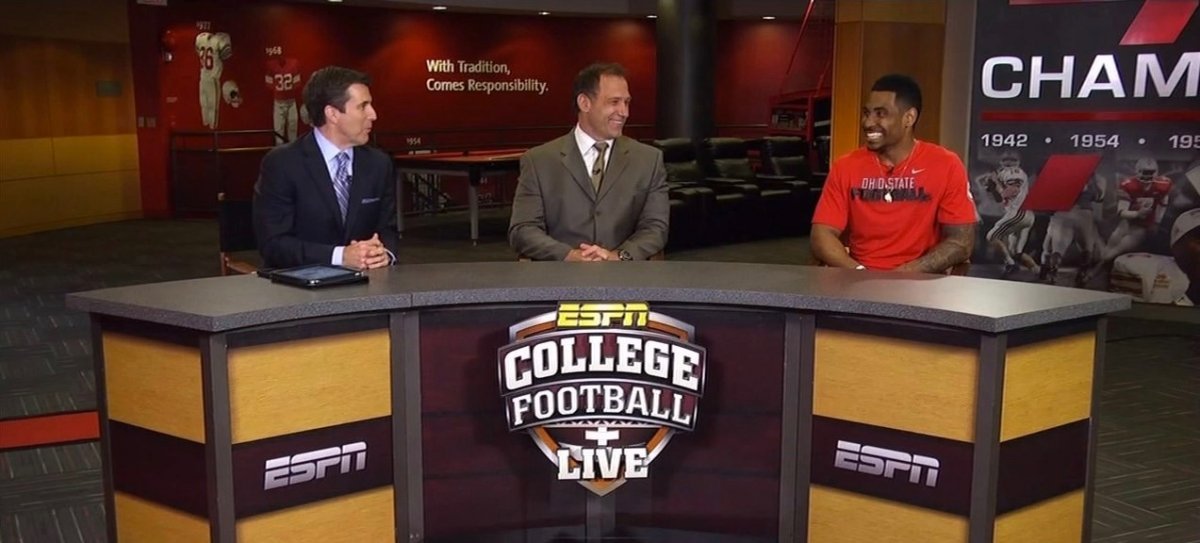
We saw a lot of discussion of politics in the NFL this year. What do you think the role of athletes is in politics?
I’m grateful that we live in a country where people have the right to freely express themselves. But I also understand that there is a time and a place.
What I’m pleased about is what came from some of the anthem protests. For example, that the owners and players were able to come together and address and do something – hopefully – about some of the issues that the players may or may not be concerned with.
It’s fine to protest something, but what are you doing to solve the problem? It’s easy to point out a problem, but what actions have you taken to solve the problem?
Going back to your college football career, what was your best memory outside of football?
I think getting a degree. You know, it was a little bit of a mental toughness test for me because I left school, and I was drafted by the Lions.
Back then, Ohio State was on a quarter system. So, I was two quarters short of graduating. Then, I remember, my rookie year, we were going in to play our last game in Tampa. We were on our way to 4-12 or something when I was a rookie, and I thought to myself: I need to go back to school now.
I was able to register for classes. I had to pay for classes all of a sudden because I was no longer on scholarship. I had to take care of all that. I thought: if I don’t go back now, it’s going to get tougher and tougher to go back.
So, I think going back after my rookie year and finishing up the last two quarters in spring – I went back for winter and spring quarter – in ’89. I graduated in ’89.
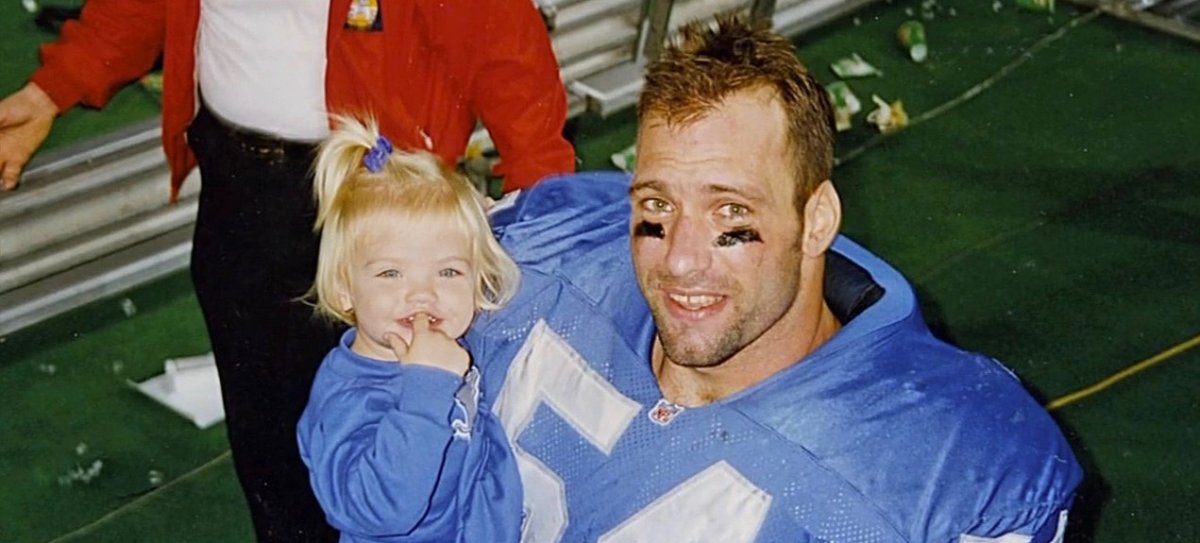
You went back while you were playing?
After the season, yes. I came back and moved to Columbus. Got an apartment off of Morse Road. Drove to campus every day. I was a regular student, but happened to be an NFL player in my off time.
How did you balance those two things?
I think you learn how to balance those things when you’re forced into balancing those things. I always tell my kids this, especially the two older ones: you have to make your own decision. I’m here to advise you and guide you, but you’re at the point where you have to make your own decisions.
I go back to the voting question: educate yourself, and make the best decision for you.
So, when you’re forced to make decisions and you’re forced to pay bills and when you’re forced to put gas in the car and you’re forced to go to the grocery store – if you want to eat [laughs] – you learn to balance things quickly. You just can’t sit around and think it’s magically going to appear.
I think experience helps you balance things. I lived on my own without the benefit of a scholarship or a training table my whole year with the Lions – my whole season, I should say, my rookie season.
What is your best football memory from Ohio State?
There are so many good ones, but I would probably say the Michigan win my senior year. Even though it was an awful year. We were, I don’t know, 6-4-1. Whatever our record was, it wasn’t what the standard is. Coach Bruce, Earle Bruce, was fired. Yet, we went up and were able to beat Michigan in Michigan. Walking off the field a winner for my last game at Ohio State...
If you could have dinner with any three people – alive, dead, from history – who would they be?
I don’t know if you know anything about me, but my faith would be one of the priorities. So, I would go with Jesus.
Probably President Trump and President Obama.
Then I’d have Jesus mediate the two sides [laughs]. And I’d sit there and take notes [laughs]. That would be an interesting dinner, I think.
What are you most looking forward to right now?
I’ve always been so: what’s next? What’s next? I’ve been so competitive and so driven, right? Always never being satisfied. And, what I’ve learned, I think, is there are blessings in contentment. Not complacency, but being content. I recognize the blessings of contentment, and I’m looking forward to living the rest of my days that way. Big difference, though, between being content and being complacent.
